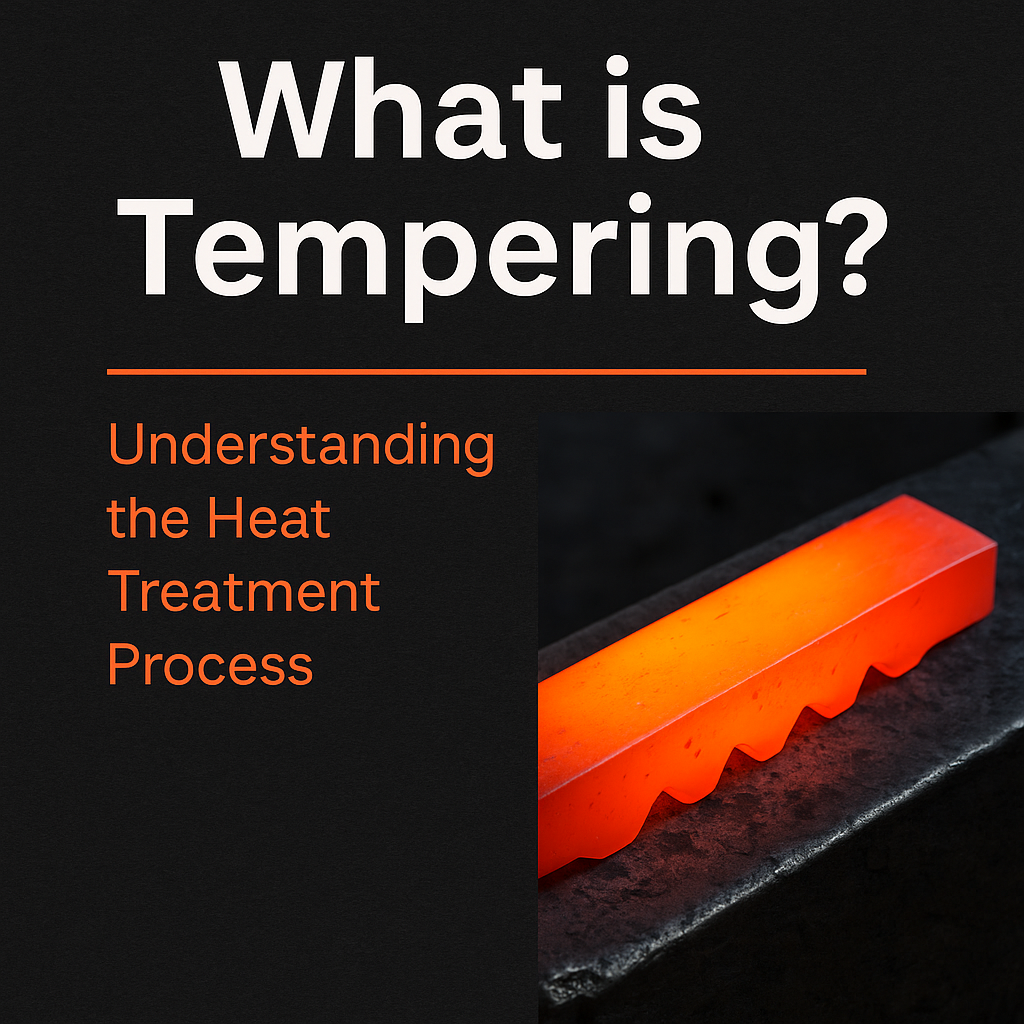Contact Us
+91 7900000776
Contact Us
+91 7900000776
Blogs
Tempering is a crucial heat treatment process used in metallurgy and manufacturing to improve the mechanical properties of metal components, especially steel and iron alloys. Whether you're in the automotive industry, aerospace sector, or tool manufacturing, understanding tempering can help you choose the right process for enhancing strength, durability, and performance.
In this blog, we’ll explore what tempering is, how it works, why it's essential, and the industries that benefit the most from this process.
Tempering is a heat treatment technique applied to hardened metals, typically steel, to reduce brittleness and increase toughness. After metal is hardened through quenching, it becomes extremely hard but also brittle. Tempering relieves internal stresses and allows the metal to become more ductile without losing too much hardness.
In simple terms, tempering adjusts the hardness-to-toughness balance in metals, making them more suitable for practical use.
Tempering involves reheating the metal to a specific temperature below its critical point (usually between 150°C to 650°C or 300°F to 1,200°F), holding it at that temperature for a certain time, and then allowing it to cool naturally.
Initial Hardening: The metal is first hardened by heating and rapid cooling (quenching).
Reheating: The metal is then reheated to the desired tempering temperature.
Soaking Time: The component is held at that temperature to allow internal stress relief and property modification.
Cooling: The part is slowly cooled in air.
Each step is vital to achieving the desired mechanical properties in the component.
Tempering significantly enhances a metal's mechanical properties, especially when it comes to:
Toughness
Ductility
Wear resistance
Shock absorption
Reduced brittleness
Crack under pressure
Fail in dynamic applications
Wear out faster due to brittleness
Tempering ensures components last longer and perform more reliably in demanding applications.
There are several types of tempering processes, each suited for different materials and applications:
Low-Temperature Tempering (150–300°C): Retains hardness, improves wear resistance (used for cutting tools, dies).
Medium-Temperature Tempering (300–500°C): Balances toughness and strength (used for springs, axles).
High-Temperature Tempering (500–650°C): Maximizes ductility and toughness (used in automotive and structural components).
Each range serves a different industrial heat treatment requirement depending on the material and function of the part.
Tempering is widely used in industries that demand a balance between hardness and durability:
Automotive Parts: Axles, crankshafts, camshafts, and gears
Aerospace Components: Turbine blades, structural brackets
Heavy Machinery: Hydraulic cylinder rods, drill bits
Tool Manufacturing: Blades, dies, cutting tools
Construction Equipment: Tracks, pins, load-bearing components
Tempering ensures these parts don’t just survive but thrive under high loads, stress, and temperature.

Tempering is often the final step in the heat treatment cycle to fine-tune a part’s mechanical performance.
If you’re looking to reduce brittleness in hardened steel parts while maintaining strength, tempering is a vital process to consider. It’s not a one-size-fits-all solution—temperatures and durations are selected based on the part’s material and its end use.
At Thakur Industries, we specialize in precision heat treatment services including tempering, induction hardening, and quenching for a wide range of components. Whether you’re from the automotive, textile, or construction industry, we can help you increase your part longevity and reliability with professional heat treatment services.
For more information on our tempering services in Ludhiana and Punjab, or to get a quote for your components, visit our website at www.thakurinduction.com or call us at +91 9815822721.
